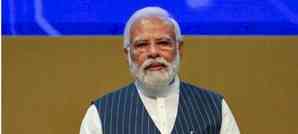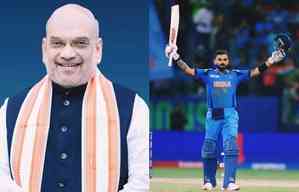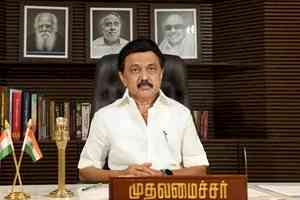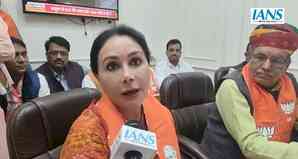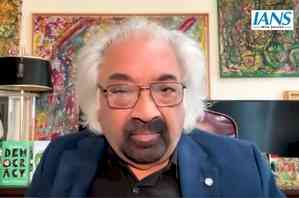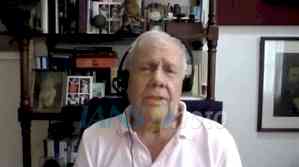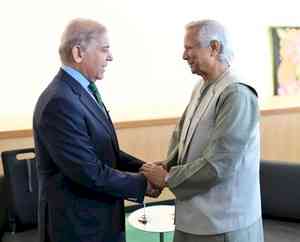Deuba comes calling: An old friend of India
An old friend of India, Sher Bahadur Deuba is visiting India on his first official visit after becoming Prime Minister in July 2021. The three-day visit comes in the aftermath of some bitterness in bilateral relations, particularly under the government of K.P. Oli.
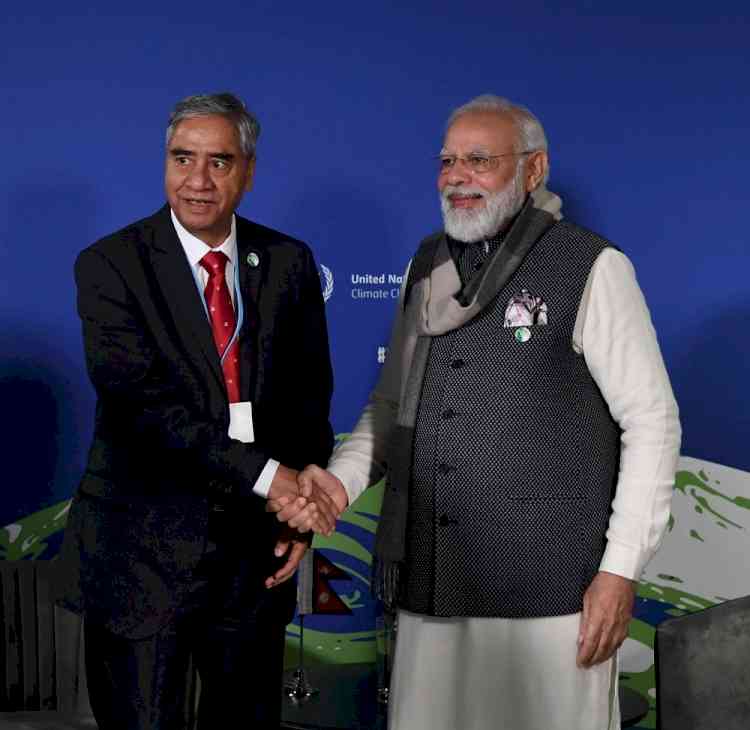
New Delhi, April 1 (IANS) An old friend of India, Sher Bahadur Deuba is visiting India on his first official visit after becoming Prime Minister in July 2021. The three-day visit comes in the aftermath of some bitterness in bilateral relations, particularly under the government of K.P. Oli.
The reset in relations is a function of history as India-Nepal ties have stood the test of time, therefore this short trip could provide the necessary impetus. The Nepalese Prime Minister is travelling at the invitation of Prime Minister Narendra Modi and expectations are that both countries will agree upon several pacts relating to connectivity and electricity.
Additionally, both Prime Ministers are expected to inaugurate (online) the Kurtha-Jayanagar railway connectivity project. All in all, this visit is appropriately slated to intensify exchanges.
The positive signals coming from the Deuba government suggest that Nepal seeks greater Indian involvement in development of several sectors. Healthcare is one such area of cooperation.
It is anticipated that an MoU on rebuilding 137 Health Posts with financial assistance from India announced in the aftermath of the 2015 earthquake will be announced during the visit.
Some announcements are likely to be made on connectivity, energy trading and railway. Notably, Deuba had visited India in each of his four earlier stints as prime minister of Nepal.
His last visit to India in his capacity as prime minister was in 2017.
Deuba also proposes to visit Varanasi, where several Nepali Congress leaders had been to in the past during the struggle to establish democracy in Nepal. The timing of the visit is also significant.
Bilateral relations particularly from the perspective of high-level exchanges and contacts have been at a low for some time now. The last visit was by Prime Minister K.P. Sharma Oli in April 2018, soon after assuming office.
Covid-19 also created complications in the relationship, in part, due to the unwarranted remarks by former Prime Minister K.P. Sharma Oli on the pandemic and the Kalapani issue.
PM Deuba had wanted to visit India during the Vibrant Gujarat summit, but the event was postponed on account of Covid-19.
The context for the present visit goes beyond merely an official one with a state visit tag. Nepal's Prime Minister is accompanied by his wife Arzu Deuba, who is well known for her work with NGOs.
It is expected that a high-level delegation will accompany the Nepalese Prime Minister. Kathmandu Post reports that an agreement that is expected to be signed is on energy trading between Nepal and India.
Nepal sees the potential of surplus power during the wet season, and is looking for a market to sell electricity.
Ultimately, Nepal-India relations need to move forward politically. This is the task of the leadership of both countries. Mechanisms to enhance cooperation already exist, the issue is getting them to deliver on existing agreements and pacts.
The element of trust and willingness to resolve bilateral differences, like say on the border, will be crucial to continue the fostering of ties. Even here, the issues are not insurmountable.
Mutual recognition of each other's security interests is a pre-requisite to take this process forward. High level contact is a part of relationship between India and Nepal. For instance, in November 2021 both leaders met in Glasgow, Scotland, on the sidelines of the
UN Climate Conference.
They had, as per official sources, "fruitful talks" and Deuba thanked India for providing support to Nepal in essential medical supplies and vaccines in its fight against Covid-19 pandemic.
Other formal contacts have been regular since mid-2021. Soon after Deuba took over, Vijay Chauthaiwale, the BJP's Foreign Affairs Department head, visited Nepal.
In return, a three-member Nationalist Congress delegation visited New Delhi in October.
The delegation met with India's External Affairs Minister Dr. S. Jaishankar and BJP President J.P. Nadda. In November, Nepal's Army Chief General Prabhu Ram Sharma came on a four-day visit and was conferred with the honorary rank of General of the Indian Army by President Ram Nath Kovind.
The current visit is thus a continuation of the long established practice of regular exchanges. Thus, the scope for improvement in ties undoubtedly exists, but with elections round the corner in Nepal in end-2022, one expects limited progress on major issues like the border.
However, as recent initiatives have shown, it is possible for India to drive development assistance to benefit the Nepalese people and become a major feel good factor in relations.
The example of the railway project connecting Kurtha and Jayanagar is a telling illustration of this type of assistance. India has offered to assist Nepal in any way required.
In the recent past, Kathmandu has tried to balance ties between India and China. Chinese Foreign Minister Wang Yi's recent visit (March 25) to Nepal soon after his India visit was necessitated by Nepal signing the Millennium Challenge Corporation compact with the US.
However, the real issues for India relating to Nepal have to do with development and connectivity. Unlike China, which is only interested in extracting its pound of flesh, India has invested in Nepal's development through the years.
The interdependence is built on the foundations of a solid people-to-people relations and a development partnership that has stood the test of time. The visit therefore, comes at a time when both sides have to take up the task of resetting ties, not so much as to make any mid-course corrections, but return to the traditional warmth in relations.
The groundwork for this has been done. Political will and direction could provide the underpinning for this renewed vigour.
While the economic relationship undoubtedly forms the base, newer initiatives relating to security and defence could be explored in depth during PM Deuba's visit. This will strengthen the relationship.
The overall matrix of ties is solid. The emotive link that India has with the Gurkhas who have served in the Indian Army provides a natural reason for beginning a new chapter by creating an initiative that will create further employment and generate mutual goodwill.
It is hoped that the Nepal's Prime Minister visit will open a new chapter in ties.



 IANS
IANS 
